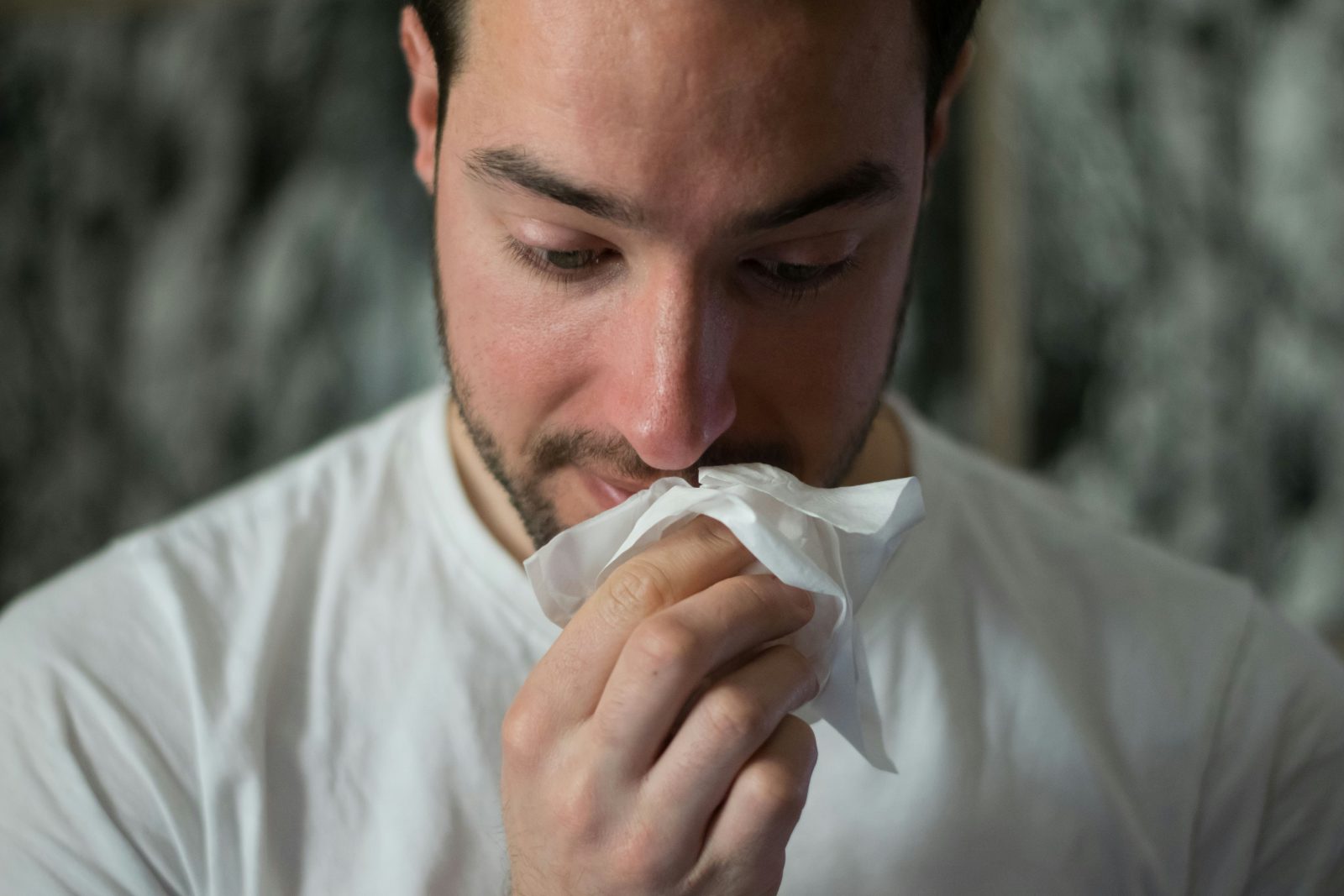It’s a common experience to feel surrounded by coughing, sneezing, and sniffles, making catching a cold seem unavoidable.
Many people rely on strategies to prevent illness or treat a cold, often based on advice passed down from family or tradition. However, these suggestions might be more folklore than reality.
Below, we’ll explore several misconceptions about catching a cold or recovering from one, accompanied by insights from healthcare experts to reveal the real facts.
- There is not much you can do to prevent catching a cold
Taking preventive measures against colds and similar illnesses is crucial. The most effective methods to prevent a cold include:
- Maintaining hydration
- Avoiding close contact with individuals who are sick
- Getting adequate sleep with the help of any of the 9 beverages that promote restful sleep
- Frequent handwashing with soap
- Consuming a balanced diet with nutrient-rich foods to strengthen the immune system
- Disinfecting commonly touched surfaces such as tables, counters, and toys.
While there isn’t a specific vaccine for the common cold, other vaccines can aid in preventing respiratory infections that might exhibit cold-like symptoms. These vaccinations encompass flu shots, COVID-19 vaccines, and, for eligible individuals, RSV (respiratory syncytial virus) vaccines.
- Consuming dairy foods leads to increased mucus production
Consuming dairy products leads to heightened mucus production in the body, some people think.
While some individuals might experience thickening of mucus after consuming dairy, particularly those with specific conditions such as a fever, the general rule is that dairy consumption does not universally increase mucus production.
Scientific evidence does not strongly support the idea that dairy consumption directly leads to excessive mucus production. However, some individuals might perceive an increase in mucus thickness or production after consuming dairy due to personal sensitivities or specific health conditions.
It’s important to note that individuals with a sore throat or certain respiratory conditions may find relief from consuming frozen or cold dairy products such as popsicles or yogurt. These cold dairy products might provide a soothing effect on the throat, offering temporary relief from discomfort.
While there may be anecdotal experiences suggesting a link between dairy consumption and increased mucus, scientific research supporting this connection is limited. The perception of increased mucus production after consuming dairy is not a universally applicable phenomenon.
- Taking vitamin C helps prevent colds
Many people believe that vitamin C can prevent or significantly reduce the likelihood of catching a cold, but the evidence supporting this claim is inconclusive.
Numerous research studies have explored the role of vitamin C in boosting the immune system and its potential to reduce the severity or duration of cold symptoms. While some findings suggest that regular intake of vitamin C might marginally shorten the duration of a cold, the evidence is inconsistent and not robust enough to definitively support the idea that vitamin C can prevent colds altogether.
It’s important to note that while vitamin C is generally considered safe and beneficial for most individuals when consumed in recommended amounts through a balanced diet, excessive intake of vitamin C can lead to adverse effects. Eating whole foods plays a big role in providing a wide range of vitamins and minerals. Check out the 9 easy ways to eat clean and change your diet for the better.
Individuals with kidney disease or those who are pregnant should be cautious about consuming high doses of vitamin C, as it may cause gastrointestinal upset or other complications.
Consulting a healthcare professional for personalized advice regarding vitamin C intake is advisable, especially for individuals with specific health concerns or conditions.
- Feeding a cold and starving a fever
There is a popular saying – “Feed a cold, starve a fever” – that suggests different dietary approaches depending on whether one has a cold or a fever.
However, the priority during illnesses like colds or fevers should be on rest and adequate hydration rather than strictly focusing on eating or fasting.
When experiencing an illness accompanied by a fever or a cold, the body’s energy requirements may fluctuate, leading to changes in appetite. During a fever, the body often experiences increased metabolic activity, which may result in decreased appetite.
Contrary to the myth suggesting starving a fever, it is important to stay hydrated, especially if one lacks an appetite or doesn’t feel inclined to eat.
Maintaining proper hydration by consuming fluids like water, herbal teas, or electrolyte-containing beverages is crucial. Hydration helps in supporting the body’s immune response, replacing lost fluids due to fever-induced sweating, and aiding in the healing process.
When it comes to food intake during illness, while it’s essential to ensure hydration, individuals may not always have a robust appetite. In such cases, easily digestible and nutritious options like chicken soup can be beneficial. Chicken soup provides hydration, easily digestible protein, and steam, which can help alleviate nasal congestion and support the healing process.
- You can cure a cold with medication
There’s a prevalent misconception that medications can provide a cure for the common cold. Medications cannot eradicate a cold. Unlike bacterial infections that can often be treated with antibiotics, there is no specific cure for the common cold, which is caused by various viruses.
Medications available for colds, such as over-the-counter pain relievers or fever reducers, may help alleviate specific symptoms like fever, body aches, or congestion. These medications aim to provide temporary relief from discomfort but do not target the underlying viral infection responsible for the cold.
The actual remedy for a cold involves supportive care, which includes getting adequate rest, staying well-hydrated, and allowing the body time to recover naturally. Resting helps conserve energy for the immune system to combat the viral infection effectively.
Adequate hydration, through water, herbal teas, or electrolyte-containing beverages, supports overall health and aids in thinning mucus secretions, easing congestion, and maintaining hydration levels.
While medications might offer symptomatic relief, they do not shorten the duration of the cold or completely eliminate the virus. The immune system plays a vital role in fighting off the viral infection, and giving the body time to heal is crucial for recovery.
- If you go outside with wet hair, you will catch a cold
The belief that stepping outdoors with wet hair can cause a cold is a common misconception. While it might make an individual feel cold or uncomfortable, going outside with wet hair itself doesn’t lead to catching a cold or other illnesses.
Colds and most respiratory infections are caused by viruses such as rhinovirus or influenza, which are primarily transmitted through respiratory droplets from infected individuals when they cough, sneeze, or talk.
Being near an infected person or touching surfaces contaminated with these viruses and then touching your nose, mouth, or eyes can lead to illness transmission.
However, while wet hair alone doesn’t directly cause illness, exposure to cold temperatures without adequate protection might weaken the body’s defenses, making it more susceptible to illnesses.
Therefore, it’s advisable to wear appropriate warm clothing, including hats or scarves, particularly in harsh weather conditions, to minimize heat loss and protect against potential discomfort from cold exposure.
- You should treat a cold with antibiotics
There is a common misconception that antibiotics are effective in treating colds. However, this notion contradicts medical evidence. Antibiotics are specifically designed to combat bacterial infections, not viral illnesses like the common cold.
The distinction lies in the nature of infections: colds are predominantly caused by viruses, while antibiotics are formulated to target and eliminate bacterial infections. Antibiotics function by either killing bacteria or impeding their growth, effectively treating various bacterial infections such as bronchitis, strep throat, and ear infections.
However, it’s crucial to note that antibiotics have no impact on viruses. Administering antibiotics for viral infections like the common cold, flu, or most cases of sore throat doesn’t yield any therapeutic benefit.
In fact, improper or excessive use of antibiotics when they’re not needed can lead to detrimental consequences, particularly the development of antibiotic resistance.
Antibiotic resistance occurs when bacteria evolve and become resistant to the effects of antibiotics. Overuse or misuse of these medications creates an environment where bacteria can adapt and survive the treatment, rendering antibiotics less effective or completely ineffective in combating bacterial infections.
Therefore, using antibiotics inappropriately for viral illnesses like the cold not only fails to alleviate the symptoms but also contributes to the growing global concern of antibiotic resistance.
- Only the flu can cause fevers, colds do not
Contrary to the misconception that fevers are exclusively associated with the flu and not with common colds, both colds and the flu originate from distinct viruses but can manifest similar symptoms. While it’s true that the viruses responsible for colds and the flu differ, both illnesses can potentially induce fevers, among other overlapping symptoms.
Colds are often caused by various strains of the rhinovirus or other respiratory viruses, and the flu is primarily caused by influenza viruses. Any of them may or may not lead to the onset of a fever.
The presence of a fever is not exclusive to the flu; individuals suffering from a cold may also experience a fever, although it might be less common or less severe compared to flu-related fevers.
Both colds and the flu can exhibit similar symptoms, including fatigue, body aches, sore throat, congestion, cough, and occasionally, a fever. When the immune system detects an infection, it triggers a response that includes raising the body’s temperature to create an environment less favorable for the virus to replicate and to enhance the immune system’s effectiveness in fighting off the infection.
It’s essential to recognize that while a fever can be a common symptom of both colds and the flu, not everyone with these illnesses will necessarily develop a fever. Other factors such as age, overall health, and individual immune responses can influence the presence and severity of fever during an illness.
- A cold isn’t contagious unless accompanied by a fever
Contrary to this belief, individuals infected with a cold virus can be contagious even in the absence of a fever. Some individuals may exhibit minimal or no symptoms yet still spread the infection, similar to what has been observed with contagious diseases like COVID-19.
It’s important to note that viruses causing colds can persist in the body for weeks even after the disappearance of symptoms.
However, the likelihood of transmitting the infection decreases over time. Although a person may feel better and the symptoms have subsided, viruses can still be present in the body, albeit in lower amounts, making it less likely for them to transmit the infection to others.
Understanding the contagious nature of colds, especially during the initial days after symptoms appear, highlights the importance of practicing good hygiene measures to prevent the spread of infections.
This includes regularly washing hands, covering coughs and sneezes, and avoiding close contact with individuals displaying cold symptoms.
Moreover, individuals who suspect they might have a cold should consider taking precautions to reduce the risk of transmitting the virus, even if they do not have a fever, as they could still be contagious.















Find Us on Socials